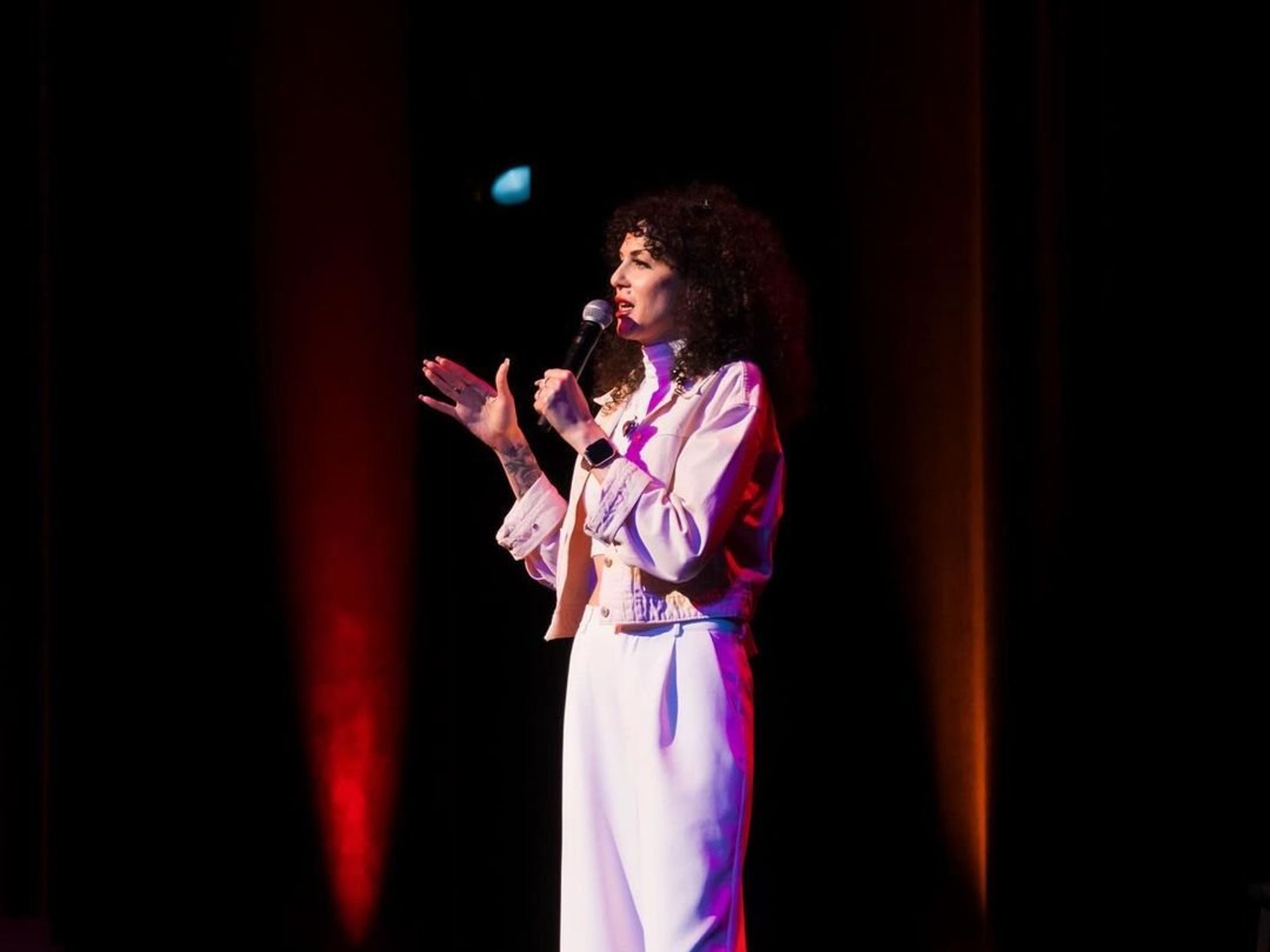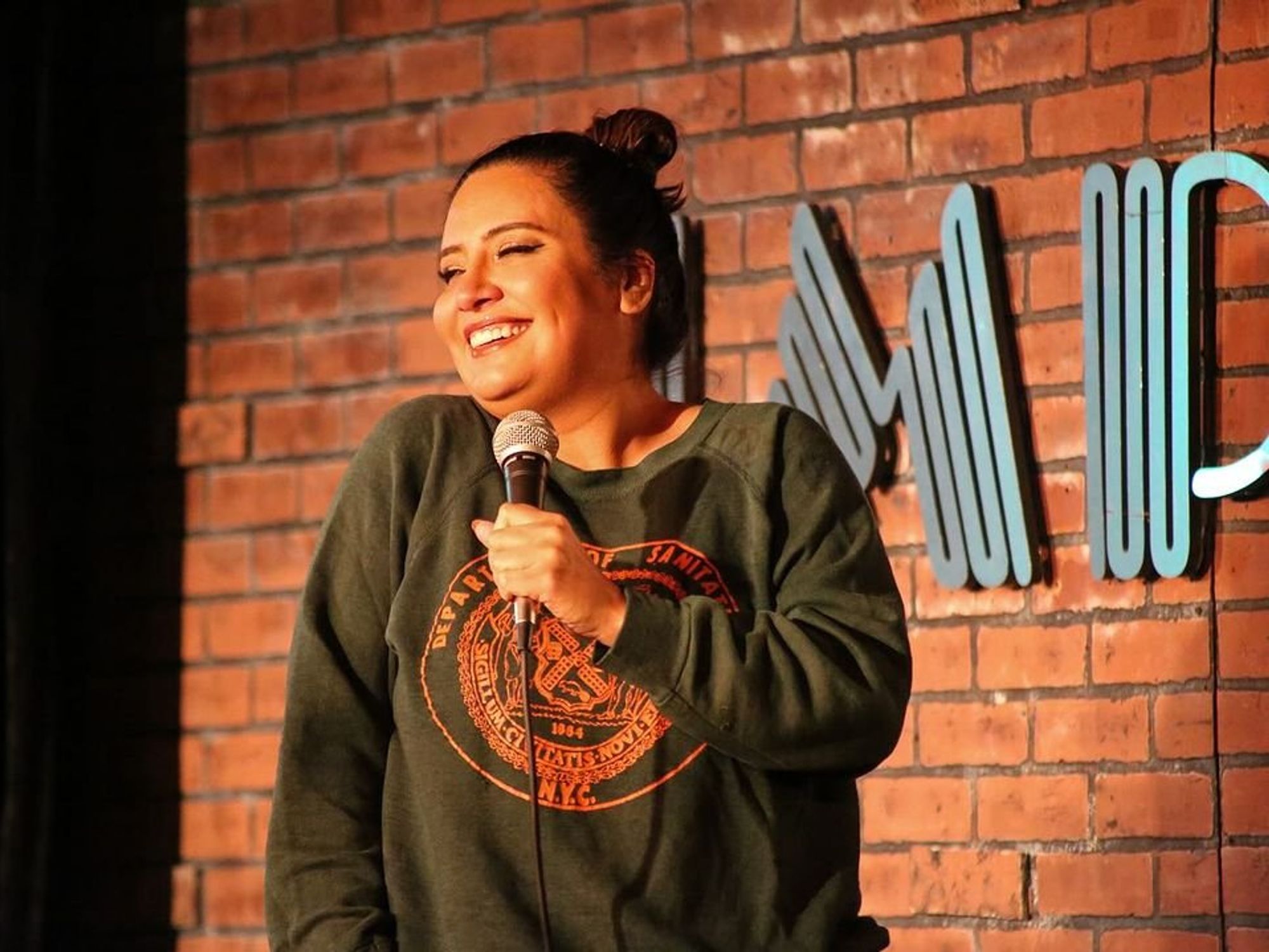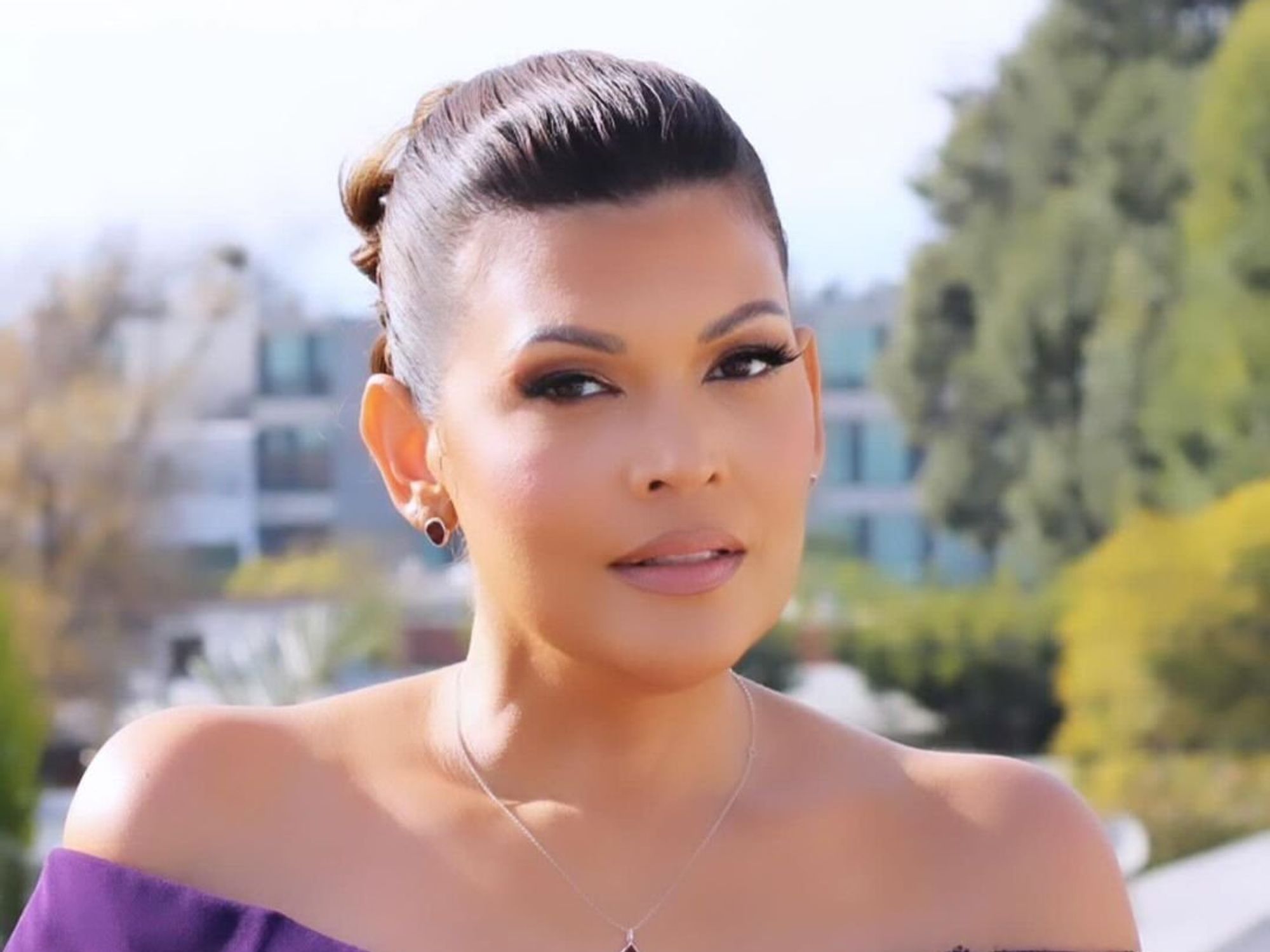
You know how they say laughter is the best medicine? Well, if you need a good dose, you can trust a Latina to deliver some top-notch sense of humor. Yes, it’s true that the comedy space is mostly dominated by white males. However, Latina comedians have carved a space for themselves, and they’re rising in popularity, breaking boundaries for others along the way. Here are 8 of the best Latina comedians who will turn your mood around with their quick-witted, hilarious jokes:
Danielle Perez
Danielle Perez, the self-described “fat b*tch in a wheelchair,” had a very interesting entry into the comedy world. It all started in 2015 when she went viral for winning a treadmill on the game show “The Price Is Right” and turning an awkward situation into a funny one. Her viral moment got her invited onto “Jimmy Kimmel Live,” and she made the most out of the momentum. Today, she’s a stand-up comedian, actress, and writer and one of the few Afro-Latinas in the space.

Photo by Danielle Perez on Instagram
Marcella Arguello
Marcella Arguello is towering over the comedy world at 6’2” and she’s made a name for herself as the self-described “humorous Amazon.” Her comedy shines a light on themes like Latino identity, gender, and race, and she’s known for being witty on the spot - don’t think you can heckle Arguello - her roasts are legendary. Marcella’s comedic timing and punchlines will always get you, you can count on that. As a Latina stand-up comedian, actress, and writer, she’s one of the few Latinas leading the charge in the scene.

Photo by Marcella Arguello on Instagram
Joanna Hausmann
Known for her ranty approach to comedy, Venezuelan-American comedian Joanna Hausmann rose to fame due to her viral sketch comedy videos on YouTube and her time on the Univision show “Flama.” She’s also a talented TV writer who has worked with HBO Max and Disney, an actress and accredited voice actress. Joanna is mostly known for her sketch comedy and for exploring themes like culture, language, politics, and dual identity. Currently, she has a podcast called “Hyphenated” with co-host Jenny Lorenzo, another well-known Latina comedian.

Photo by Osvaldo Ponton on Instagram
Cristela Alonzo
There’s making a mark, and then there's Cristela Alonzo, a Mexican-American trailblazer. She made history as the first Latina woman to create, produce, write, and star in her own sitcom, “Cristela,” on ABC. She also has a Netflix special, “Lower Classy,” where she hilariously explores themes like Latino stereotypes and her mother’s tough-love approach to parenting, among other things. Crisela is multi-faceted as a stand-up comedian, actress, writer, and producer, so it’s exciting to see what she will do next.

Photo by Christopher M. Morales on Instagram
Melissa Villaseñor
Melissa Villaseñor might look familiar to you because she worked on “Saturday Night Live” from 2016 to 2022, where she delivered hilarious impressions. Melissa is another Mexican-American making waves in the comedy scene not only with her wide range of impressions but also with her stand-up comedy, acting skills, and singing. She’s also a talented illustrator, so Melissa is quite a well-rounded artist with a lot of creativity beyond comedy.

Photo by Robyn Von Swank on Instagram
Sasha Merci
Hailing from the Bronx and based in Los Angeles, this second-generation Dominican-American has grown in popularity due to her sketches. She posts mostly on Instagram, and her funny takes and jokes have gone viral several times. Sasha is also a stand-up comedian, writer, actress, and digital creator. She’s a great example of what can happen when you follow your dreams, a message she’s passionate about sharing with her audience.

Photo by Sasha Merci on Instagram
Aida Rodriguez
Aida Rodriguez is a survivor with a sense of humor. She’s known for her poignant comedy and she came into the spotlight in 2014 as a top ten finalist in the NBC show “Last Comic Standing.” Of Puerto Rican and Dominican descent, Aida has made a name for herself in the comedy scene through her stand-up comedy. With her debut comedy special “Fighting Words,” she made history as the first Latina to appear in two specials airing in one month on both HBO Max and Showtime. She’s also an actress, writer, producer, podcaster, and now author, with her book “Legitimate Kid,” a collection of essays exploring how to turn pain and difficulty into laughter.

Photo by Aida Rodriguez on Instagram
Jenny Lorenzo
Jenny Lorenzo is part actress, part comedian, and total Cubana. She rose to popularity due to her “Abuela” character on YouTube and hilarious sketches, which she continues making to this day. This character is inspired by her Cuban heritage, and Lorenzo delivers the character with total relatability, which is why it resonates so much with Latino audiences of all nationalities, not just Cuban. Jenny is also an actress, voice actress, writer, and producer. As mentioned earlier, she’s also the co-host of the “Hyphenated” podcast with Joanna Hausmann.
The next time you need a good laugh, be sure to check out the content these talented Latina comedians share with the world. The laughter is guaranteed!

Photo by Nick Rasmussen on Instagram














